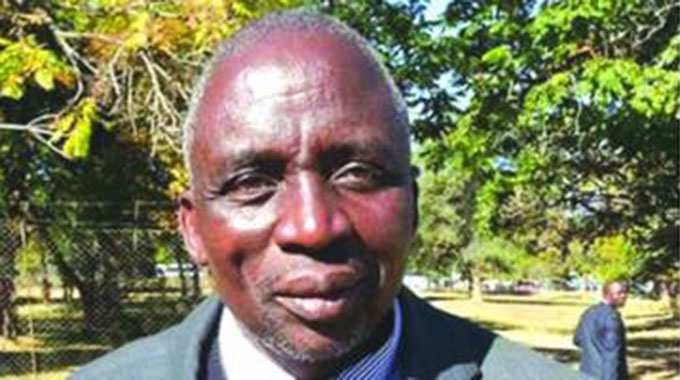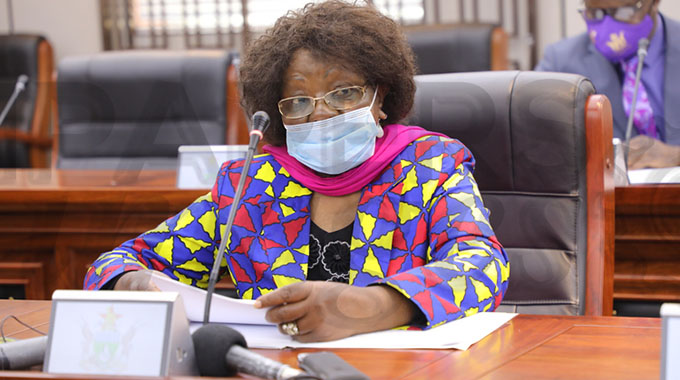400 drop out over pregnancies, illness

Rumbidzayi Zinyuke
Manicaland Bureau
Over 400 girls from four districts in Manicaland have dropped out of school altogether owing to pregnancy, marriage, financial challenges and illness.
The figure is expected to rise as Mutare, Chimanimani and Nyanga districts are still compiling statistics following the resumption of lessons for examination classes on September 28.
Statistics from other provinces regarding dropouts are not yet available.
Government recently amended the Education Act to allow pregnant pupils and students to attend classes in all schools, which would ordinarily mean most of these children are allowed to go back to class.
Manicaland provincial education director (PED) Mr Edward Shumba, told The Herald that most of the dropouts were due to pregnancy, marriage, financial challenges, illness and employment.
“We have so far received statistics from Buhera, Chipinge, Mutasa and Makoni. The other three districts are yet to send the statistics, but we expect the figures to increase,” he said.
He said Buhera district had registered 47 grade seven dropouts, of which 35 were girls and 12 were boys. At O’Level, 90 girls and 49 boys dropped out while one A’ level girl dropped out in the district.
“There are 96 female learners in Buhera who dropped out for marriage and five males. We also have one O’ level student who fell pregnant. Other reasons given for the dropping out are financial challenges, illness with some joining the job market,” said Mr Shumba
In Chipinge 46 females are said to have been married while Makoni recorded 65 pregnancies and 64 marriages and Mutasa had 40 marriages.
Manicaland has one of the highest rates of teenage pregnancies and early marriages which has been a cause for concern for authorities.
Despite numerous targeted interventions, the province failed to meet part of its set contributions to the Zimbabwe Family Planning Strategy (2016-2020) to reduce teenage pregnancy rates from the current 27 percent to 12 percent by this year. The current rate is above the national average of 22 percent.
On whether those that fell pregnant were allowed back in schools as per new law, Mr Shumba said the Ministry was yet to establish the full facts.
“We are working with preliminary information being gathered by school authorities in the different districts. However, it will be difficult for us to make a follow up on these children to find out if the reasons we have been given are true or not and possibly engage parents because of the ongoing industrial action by teachers. We do not have staff on the ground so it will take time. When all this is settled, we will make sure to follow up,” he said.
Provincial development officer in the Ministry of Women’s Affairs, Community, Small and Medium Enterprises Development Mr Munyaradzi Rubaya said schools must accommodate girls who fall pregnant to ensure they continue with their studies.
“We are encouraging education institutions to accommodate these girls and create an environment which is conducive for their continued learning because in most cases these girls are stigmatised,” he said.
The amendment of the Education Act will restore dignity to the girls and enable them to self-correct and still be able to plan for the future after giving birth.
Mashonaland East PED, Mrs Anatoria Ncube, said there are yet to collect data on children who failed to return to examination writing classes owing to pregnancies as they have to ask parents and headmasters to get a comprehensive report.
However, parents at an advocacy meeting restriction to sexual information organised by National Aids Council recently in the province, agreed that several children had fallen pregnant during the lockdown.
They appealed to Government to allow children be taught to have safe sex to avoid early pregnancies.
ZICHIRE programmes officer, Mrs Kudakwashe Mashoko confirmed that some children had fallen pregnant.
“We have to teach our children to have safe sex to avoid early pregnancies. We cannot deny that our children are having sex because we have a number of dropouts due to pregnancies,” she said, adding that in Hwedza a Grade Seven boy had impregnated a Form Two student.
Matabeleland South’s PED, Mr Lifias Masukume said he was yet to get reports of pupils failing to turn up at school for similar reasons.
“My office is yet to receive reports of that nature unless there are still being investigated at district offices before being brought forward to me,” he said.
The province has 169 secondary and 557 primary schools and has a shortage of a combined 114 schools.
No reports of dropouts were recorded in Mashonaland West although Ministry of Education officials said the possibilities of having such students are very high.
Provincial education director, Mr Gabriel Mhumha said from the examination classes that resumed recently, there had been no reports of dropouts due to pregnancies.
“From a factual point of view, we have not recorded any drop outs due to pregnancy issues but, it is a possibility that we should not over rule. We will only get the facts and statistics once all children start coming to school as the turnout is not yet 100 percent for exam classes.
“We also envisage dropouts in the lower levels but, this can only be known once our officials supply us with the reports,” he said.
He added that the province which was supplied infrared thermometers and masks by government to prepare for phased opening, had also received a shot in the arm from a local organisation, Education Coalition of Zimbabwe (ECOZI).
The organisation provided face masks that were distributed to five schools in the low-lying areas of Hurungwe and Kariba Rural districts.
In Masvingo while there have been isolated unconfirmed reports of students falling pregnant during the long absence from school, Provincial Education Director Mr Zedious Chitiga yesterday said there were no reports of students dropping out of school after falling pregnant.
“As a province I must say we have no statistics about student pregnancies. We have not received any report of students falling pregnant or having dropped out of school or anything associated with that,” said Mr Chitiga.







Comments